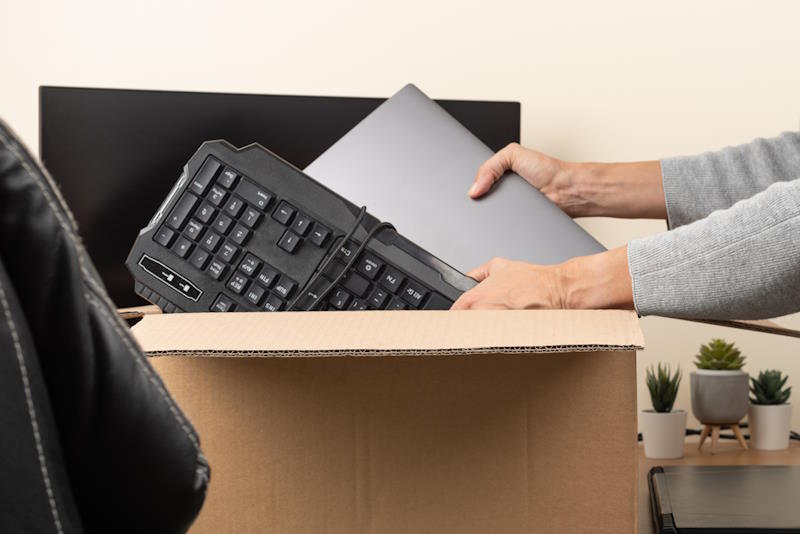Countless homeowners purchase new appliances and wonder what to do with their old ones every year. While some opt to sell or trade in their used appliances, others simply send them to the landfill. But there's a smart alternative that offers both environmental and financial benefits: donating appliances. By donating, you not only keep valuable materials out of the landfill but also gain the opportunity to deduct the value of your donation from your taxable income.
A popular service like Easy Donation Pickup makes the donation process even more convenient. And the best part? You get the double benefit of aiding a charitable cause and enjoying a potential tax deduction.
Basics Of Appliance Donation Deductions
Understanding the fundamental guidelines surrounding appliance donation deductions is crucial. First, it's essential to ensure the charity you're donating to is a recognized 501(c)(3) non-profit organization. Donations to such organizations can qualify you for a tax deduction.
Next, the value of your donated appliance is what you'll deduct. You should consult the organization or use a trustworthy valuation guide to determine its fair market value. Keep in mind that if the appliance's value exceeds USD$500, additional IRS documentation may be required.
Documenting Your Donation
Always ask for a receipt when you donate. This should list the item, its estimated value, and the date of donation. It's a good practice to take pictures of the appliance before donating, especially if it's in good condition. This visual proof, along with your receipt, can be handy if the IRS questions your deduction.
Additionally, remember to itemize your deductions. Standard deductions won't allow you to capitalize on the value of your appliance donation. By itemizing, you're claiming individual deductions that could lead to more significant savings.

Making The Most Of Your Donation
Before you consider donating, check if your appliance is in working condition. Charities often prefer items that function well as these can be put to immediate use or sold more easily. Even if your appliance isn't functioning, some organizations may accept it for parts or recycling.
And while you're on the path of generosity, consider the accessories. Manuals, remote controls, and extra parts that accompany your appliance can increase its donation value. It's a small effort on your part that can make a huge difference for the receiving organization.
Environmental And Community Impact
Donating appliances goes beyond personal tax benefits. You're actively contributing to a greener planet. When appliances are dumped in landfills, they can leach harmful chemicals into the ground. By donating, you help to reduce this environmental harm.
Moreover, your contribution can be a lifesaver for many families. Low-income families or individuals starting anew can benefit immensely from your donated appliance. It's a chance for them to create a more comfortable living environment without the burden of large expenses.
Choosing The Right Organization
Selecting the right charitable organization is paramount to ensure your donation has the intended impact. Organizations differ in their mission, operation, and efficiency. Do some research. Look into the charity's goals, their community involvement, and the percentage of donations that go directly to their cause.
Additionally, see if they’ve partnered with professional services to simplify the donation process. Convenience, coupled with the knowledge that your appliance is making a real difference, can make the act of donating even more rewarding.
Maintaining Your Appliance For Higher Deduction Value
It's never too early to think about donation. From the moment you purchase an appliance, consider its maintenance not just for your use but for its future value. Regular cleaning, timely repairs, and safe usage can help retain the appliance’s value over time.
Keeping the original packaging, warranty details, and purchase receipts can also aid in establishing the appliance's worth during donation. These small steps, taken consistently, can amplify the financial benefit you receive when you're ready to donate.
Tax Implications Of Appliance Donations
Understanding tax deductions can be a bit daunting, but it's essential to get it right. For starters, only those who file a Schedule A, itemizing their deductions, can claim charitable donations. If the combined total of your itemized deductions exceeds the standard deduction amount, itemizing makes sense.
Also, be aware of limits. The IRS places caps on how much you can deduct based on your Adjusted Gross Income (AGI). Typically, for donations to public charities, the limit is 60% of your AGI. However, this can vary, so it's advisable to consult with a tax professional to navigate these nuances.
Benefits Beyond The Deduction
While the tax deduction is a tangible reward, the intangible benefits of donating can be just as significant. The joy of giving, the knowledge that you're positively impacting the environment and someone's life, and even the decluttering of your own space can lead to a sense of fulfillment.
Furthermore, by donating, you're setting a precedent for those around you. Friends, family, and neighbors might get inspired by your gesture and choose to donate as well. This ripple effect can lead to broader community involvement, amplifying the benefits manifold.
Knowing When It's Time To Donate
Sometimes, the decision to donate might not stem from a desire for a new appliance but rather the realization that an item isn't being used to its full potential. Maybe you have a spare fridge in the basement that's barely used or a washing machine in the guesthouse that runs once a month. Instead of letting these appliances sit idle, donating them can breathe new life into them.
Regularly assessing what you have, what you need, and what's being underutilized can lead to meaningful donation opportunities. Turning this into a routine activity, maybe once a year, ensures you consistently unlock value while helping others.
Making Donations A Habit
Establishing a regular donation routine can be a game-changer. Instead of seeing appliances as items with a finite lifespan within your home, view them as resources that can be redistributed to those in need. Setting a biannual or annual reminder to evaluate your home appliances can make this practice habitual.
Also, don't limit yourself to just large appliances. Small kitchen gadgets, fans, heaters, or air purifiers that might be gathering dust in your storage can be of great utility to someone else. These smaller items can sometimes be overlooked but can add up in terms of deduction value and utility to recipients.
Furthermore, engaging in community drives or collaborating with neighbors can help pool resources for larger donations. This not only maximizes the impact on the receiving end but also fosters a sense of community and shared purpose. The collective effort can even lead to the discovery of local charities or causes that resonate deeply with you and your community.
Conclusion
Appliance donations offer mutual benefits. As you refresh your space, remember the invaluable impact your items can have. Donating doesn't just reveal tax advantages but also betters the environment and uplifts the underprivileged.
